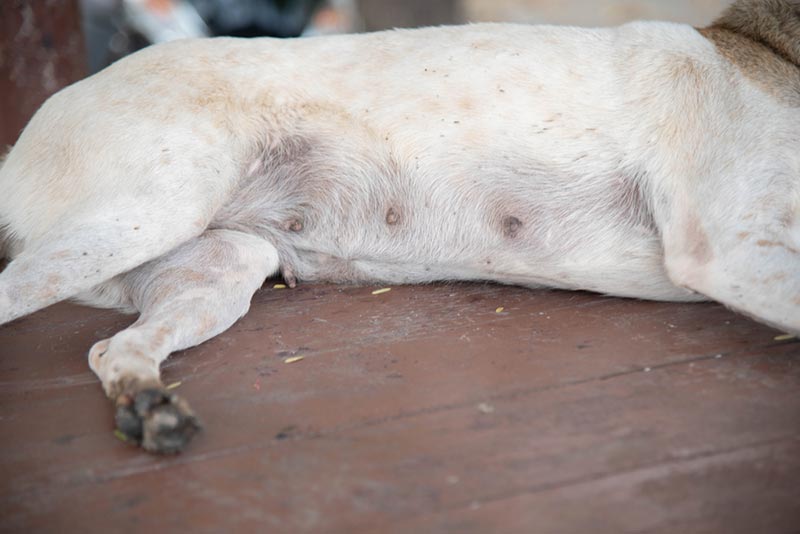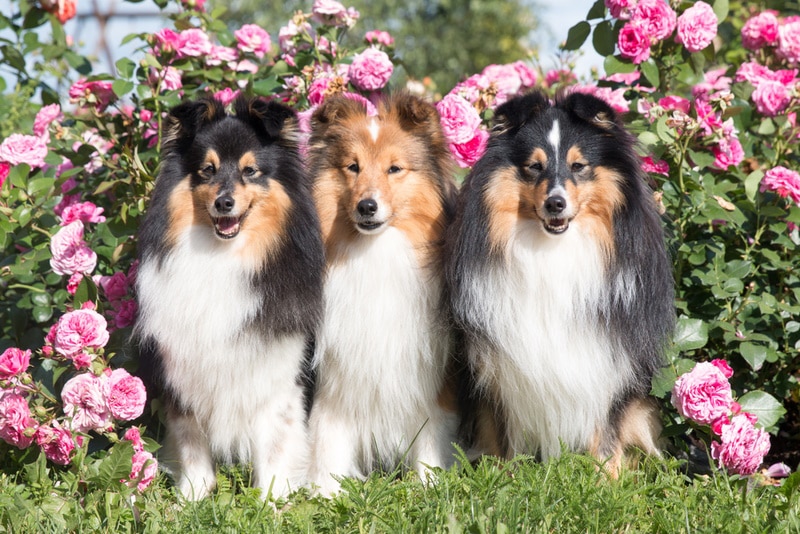7 Common Bernese Mountain Dog Health Problems (2024 Update)
By Cheryl Regan
Updated on
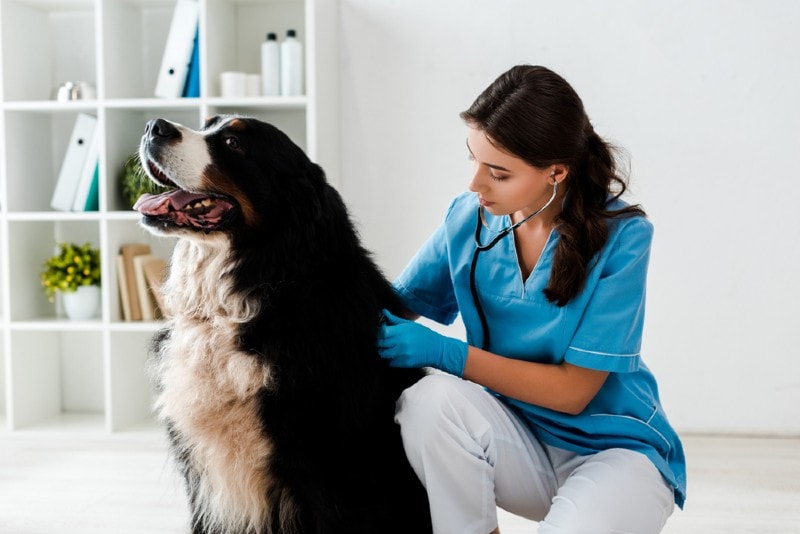
Affectionately known as Berners, these gentle giants are lovey-dovey, sweet-natured, and great with kids and other pets. Bernese Mountain Dogs are strong working dogs that stand at around 27 inches tall.
The average life expectancy of a Berner is around 8.4 years¹, with female dogs surviving a little longer than males. Although most Bernese Mountain Dogs are perfectly healthy, this large breed is susceptible to various health disorders.
In this article, we’ll list the seven most common Bernese Mountain Dog health problems, and which signs and symptoms to watch out for as an owner.
The 7 Common Bernese Mountain Dog Health Problems That You Should Know
1. Neoplasia
Research has shown that the largest cause of death in Bernese Mountain Dogs is cancer2. Some cancers are more prevalent for this breed than others, with histiocytic sarcoma or malignant histiocytosis being the predominant form3.
- Hemangiosarcoma – a cancer of the blood vessels
- Lymphoma – a cancer that affects lymph nodes, bone marrow, and spleen
- Mast cell tumors – tumors that appear as nodular masses on the dog’s skin
Other forms of cancer can affect Bernese Mountain Dogs, too, but the above are the most common.
There is evidence¹ that it may be possible to breed away from histiocytosis, and certainly, if you’re looking to adopt a Berner, be sure to look into whether there is a history of histiocytic disease in either parent.
Regular blood tests and checkups are recommended for Bernese Mountain Dogs. If your Berner displays the following symptoms, you should book a visit with the vet as soon as possible:
- Loss of appetite
- Weight loss
- Lethargic or sluggish behavior
- Lesions or bumps on the skin

2. Canine Hip Dysplasia (CHD)
Hip dysplasia occurs more often in larger breeds, including Bernese Mountain Dogs. Hip Dysplasia refers to a condition where the head of the femur bone joins with the hip socket incorrectly. The painful condition is hereditary, and responsible breeders should screen their breeding stock for canine hip displaysia (CHD), as well as other disorders.
A good, healthy diet can slow the progression of CHD, however, it cannot be cured or reversed. Your vet can recommend treatment and help you manage the CHD and support your pet.
- Decreased activity
- A swaying or changed gait
- Limping
- Joint grating
- Stiffness or limping
- Lameness in the hind legs
- Thinning thigh muscles
- Weak or collapsing hind legs
- Shaking legs, especially when standing for prolonged periods
- Shows signs of pain when touched near the hips
3. Elbow Dysplasia
Similar to hip dysplasia, in elbow dysplasia, the elbow joint develops abnormally, leading to pain, limping, and lameness. It can also progress into arthritis. Most Berners with elbow dysplasia will probably need surgery, however, each dog’s treatment will vary depending on various factors, including the severity of the condition, and the dog’s overall health.
Like hip dysplasia, elbow dysplasia is hereditary, but factors like diet, trauma, and exercise can affect the outcome.

4. Gastric Torsion (Bloat)
Gastric torsion is a very serious and life-threatening condition that can affect any breed, however, larger dogs, including Bernese Mountain Dogs, are more susceptible to the disease.
It can be caused when a dog consumes a large amount of food or drink quickly—often after exercising. This causes bloating and trapped air that can’t escape naturally. Other factors that can lead to gastric torsion include stress, such as changes to routine, and genetics.
If you think your dog could be suffering from a dilated stomach or gastric torsion, you should take it to the vet immediately.
- Excess drooling
- A bloated or dilated abdomen
- Difficulty breathing
- Weakness and lack of appetite
- Restlessness
- Retching (but only expelling frothy saliva)
5. Renal Failure and Kidney Disease
Kidney diseases contribute to shorter life expectancies for Bernese Mountain Dogs. Research shows that Berners are more susceptible to renal disorders than other breeds.
It’s important to catch canine kidney disease in its early stages so that your vet can help you get the proper treatment for your Berner.
- Excessive thirst
- Excessive urination
- Blood in urine
- Lethargy and loss of interest in playing
- Weight loss
- Vomiting
- Bad breath
- Mouth ulcers (these usually occur in more advanced stages of kidney disease)
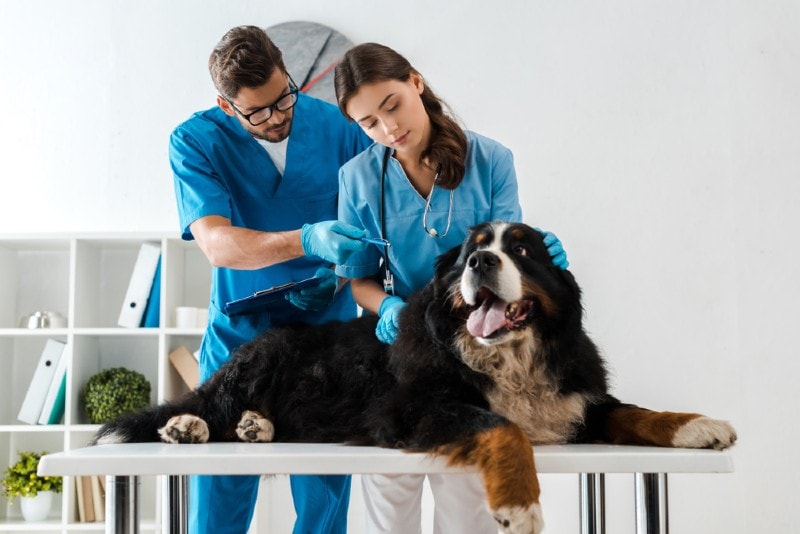
6. Progressive Retinal Atrophy (PRA)
This is another genetic disease that some Berners can inherit. It is a progressive eye disease that eventually leads to blindness. The disease is not necessarily age-related.
In early-onset PRA, vets can detect abnormal cell development in Berners from as little as three months old. In late-onset PRA, the cells generate normally, only to degenerate a few years later, causing eyesight problems.
If your dog’s pupils appear dilated, or if they seem disorientated or hesitant to explore new places, they may need to have their eyes checked.
7. Von Willebrands Disease
Von Willebrands disease is a genetic blood disorder that prevents proper clotting, leading to easy bruising and abnormal blood loss in some dogs. Bernese Mountain Dogs are susceptible to vWD—however, with the proper care, most affected dogs will still reach their normal life expectancy.
Symptoms include frequent nosebleeds, bleeding from the gums, and prolonged bleeding after injuries or surgery.
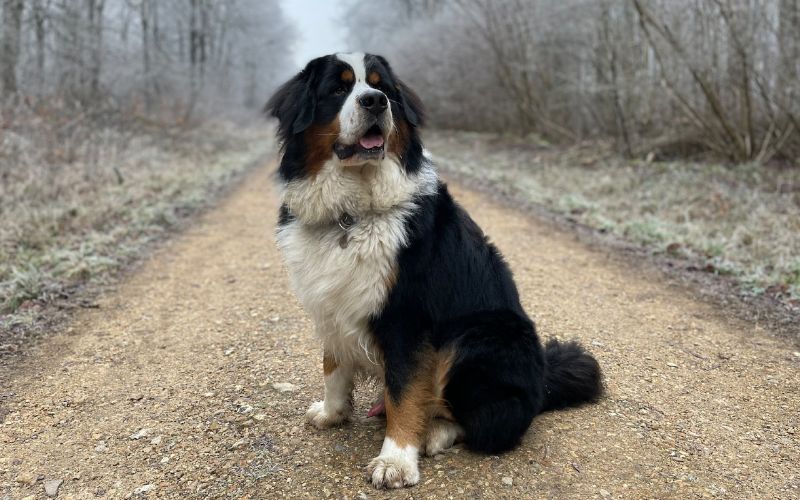
Conclusion
Most Bernese Mountain Dogs will live a happy and healthy life, however, these gentle giants are susceptible to various genetic disorders. The most common health problems that Berners face include eye-related problems, such as progressive retinal atrophy, joint and bone issues, such as elbow and hip dysplasia, cancer, and bloat.
Featured Image Credit: LightField Studios, Shutterstock


